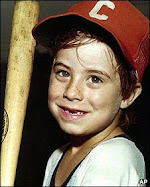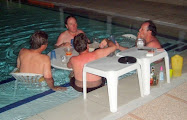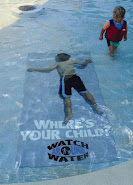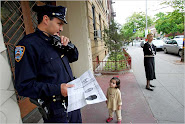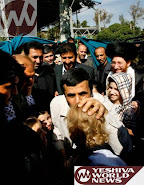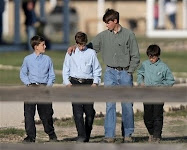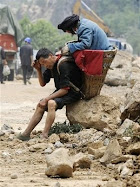



Children and Summer Camp: Tips for Parents
Over 10 million children go to summer camp each year. For most, it’s a fun and rewarding experience full of challenges and excitement. In addition to physical and athletic activities, kids learn about independence, cooperation, competition and teamwork. They also learn that they can survive away from home.
For many children, summer camp is also a time of significant emotional growth, development and transition. Parents often note that their children come home seeming older or more mature than before they left. Although most children are excited about going to summer camp, for some, it can be a scary or anxiety provoking experience. In general, parents should not push or force kids to go to camp if they feel frightened or uncomfortable. The following tips are designed to help parents prepare their kids for summer camp and deal with issues that may arise:
- Choose a camp that is suited to your child’s personality, temperament and interests. If your child likes music, art or horseback riding, it makes sense to pick a camp with strengths in that area. At the same time, there is nothing wrong with encouraging kids to try new things or to have a variety of experiences. In general, it is best not to force kids to do things at camp that they really dislike or simply cannot do. Repeated negative experiences can have a significant effect on a child’s self-esteem.
- Involve your child in choosing the camp. Review brochures, videos and websites together. Ask for the names of other families you and your child can talk to about the camp.
- Don’t push kids to go to camp at too early an age. The “right” age will vary from child to child. Some kids are “ready” for “sleep away” camp at five or six, while others would not even consider the idea at 14 or 15. If a child doesn’t seem ready for a full summer away, consider a camp which has one-month sessions. It may be an easier transition and a more positive experience.
- If your child is shy, consider a camp where they know and like at least one other person their own age. Having one friend makes it easier to meet other kids.
- If you choose a camp that is driving distance, consider an off-season visit to help familiarize your child with the setting. It’s not unlike visiting a new school with your child.
- Encourage kids to bring favorite toys, books, music or other reminders of home such as photos or even favorite foods, if allowed by the camp.
- If kids have issues or problems with other campers, encourage them to try to work things out themselves before intervening. Suggest that they ask a counselor or the camp director for help or suggestions. Remember, part of camp is about learning how to deal with new people and different situations.
- Don’t be surprised if your child gets “homesick”. It’s a normal reaction to being away from family and friends, especially for the first time. Don’t criticize a child who feels homesick at camp. Telling them to “buck up” can sometimes make them feel worse. Instead, be supportive, reassuring and consistent. Tell them you understand that it’s hard to be away from home, and that you miss them, too. Try to focus on intermittent goals, like Visiting Day or special camp events. Regular, scheduled and predictable phone contact may also be helpful. For most kids, episodes of homesickness pass within a few days.
- If homesickness persists or seems severe, or if your child seems truly unhappy, talk to the camp director. Is your child having a particular problem with another child or a counselor? Is there an activity or expectation that is causing difficulties? Are they being pushed to do things beyond their level or capacity, like long distance swimming or extended hikes? Or is it just the wrong setting for your child? In the end, trust your instincts. If you are convinced it’s just not working out, do not be afraid to let your child come home. It’s not the end of the world for you or for your child, and it’s better than being truly miserable or unhappy for an entire summer.
- Help children keep in touch with friends from summer camp. Plan times for them to get together with kids who live nearby. For friends who live at a distance, letters, phone calls and e-mail can help them maintain contact during the school year.
Most kids enjoy camp. They often look forward to returning year after year. However, careful camp selection, preparation and planning can increase the likelihood of a positive experience.
=========================================================================
Traveling with Children – Tips for Parents
Summer is here and many families will be traveling to a variety of vacation destinations. Many children enjoy traveling. It is an opportunity to see new places, meet new people and have new experiences. However, travel can also be anxiety provoking for some children. Being in large crowds, flying, sleeping in a strange bed, or eating unfamiliar foods can cause concern for some children.
The following suggestions may help parents minimize a child’s anxiety when traveling:
- If your child is old enough, let him or her help plan your trip. Let them learn about where you’re going and how you’re going to get there.
- Leave plenty of time. Nothing is more stressful for parents or children than rushing to catch a plane or trying to reach a destination on time.
- Keep children occupied, especially on car or plane trips. Bring food, books, and games.
- Try to establish a relatively regular routine, even when traveling. Children are reassured by predictability.
- Let your child bring something familiar from home. It may be a stuffed animal, blanket, or a favorite toy. Encourage kids to bring pictures of friends, family, and pets.
- Plan plenty of bathroom and snack breaks. Try to keep kids comfortable and well fed.
- If traveling for an extended period, help kids keep in contact with friends back home. Let them call, send letters, postcards, or email to friends.
- Don’t force kids to tolerate extended “adult activities” like long museum visits, formal dinners, or plays in languages they don’t understand. Plan child oriented activities -- children’s museums, parks, zoos, and toy stores.
Most children like to travel and welcome the opportunity to spend time with one or both parents. Despite the excitement, a certain degree of anxiety about being away from home is common. However, some children experience extreme anxiety that makes it difficult, if not impossible, for them to travel. They may be anxious about flying or worried about getting lost. They may be uncomfortable sleeping in an unfamiliar place. If such worries persist, or a child experiences episodes of intense anxiety or panic attacks while traveling, parents should talk to the child’s pediatrician or family doctor, who can provide a referral to a trained and qualified mental health professional.
=========================================================================






































































































































































































